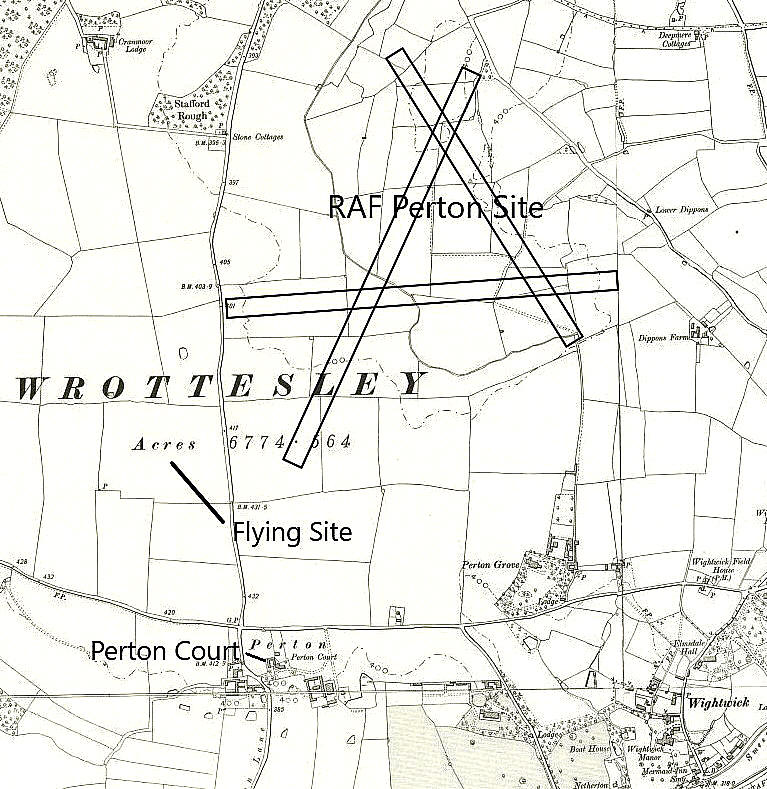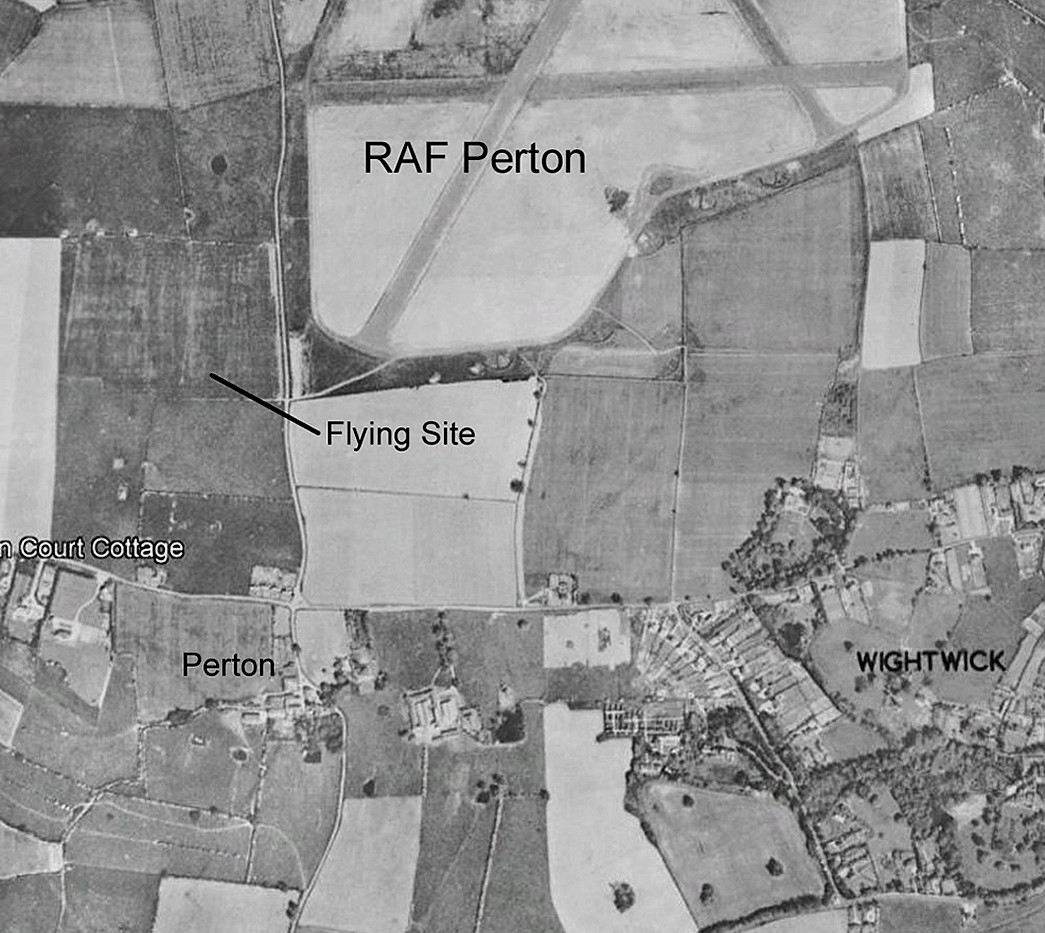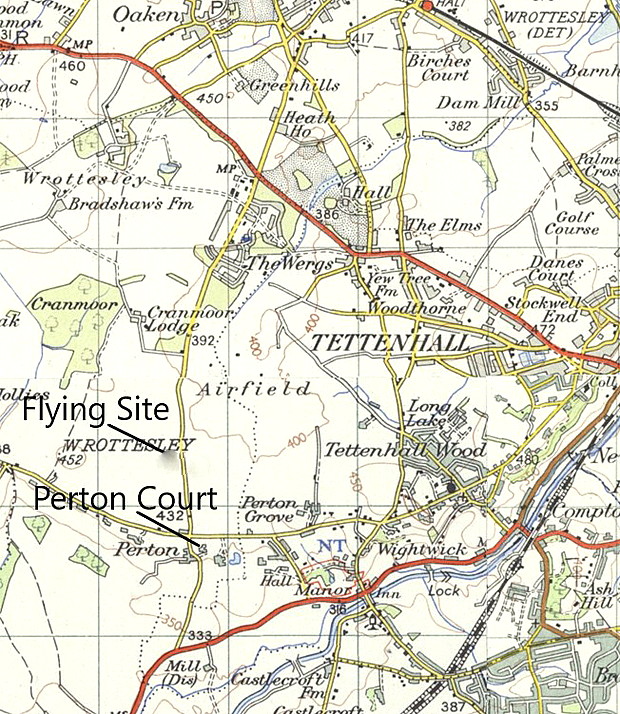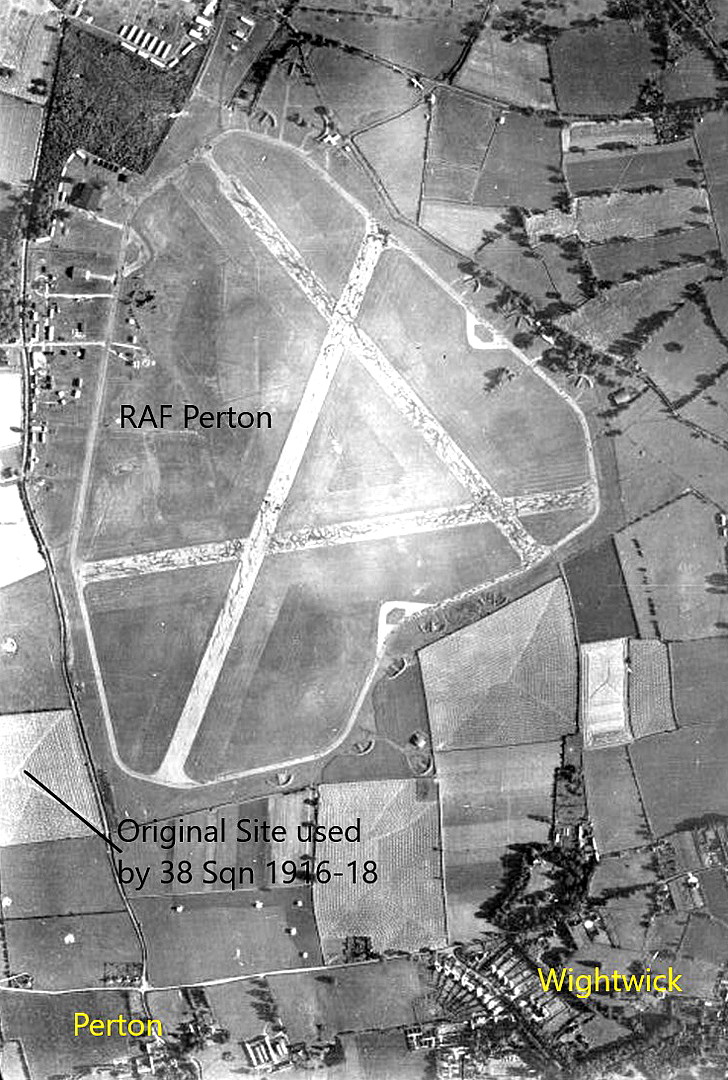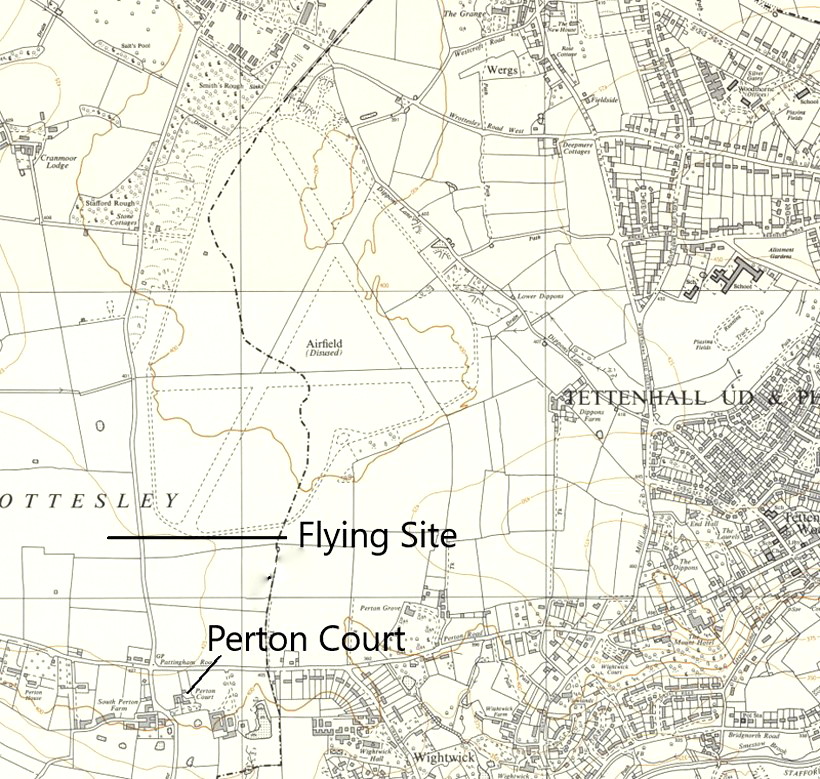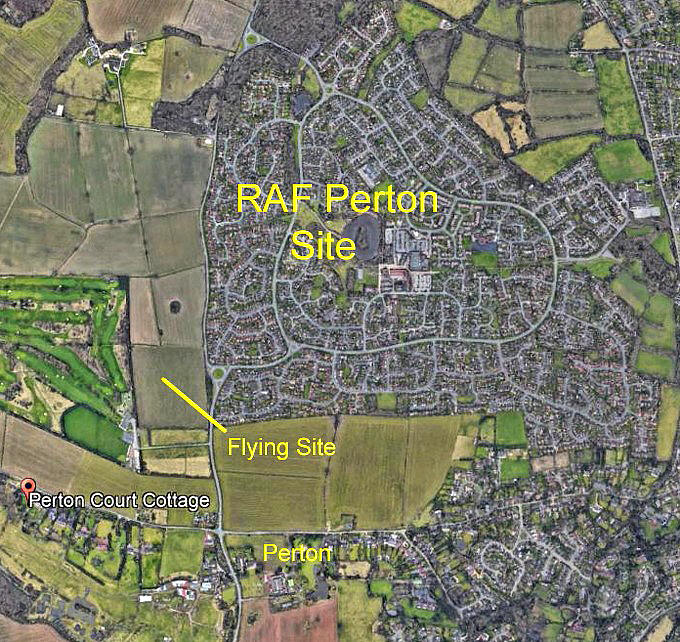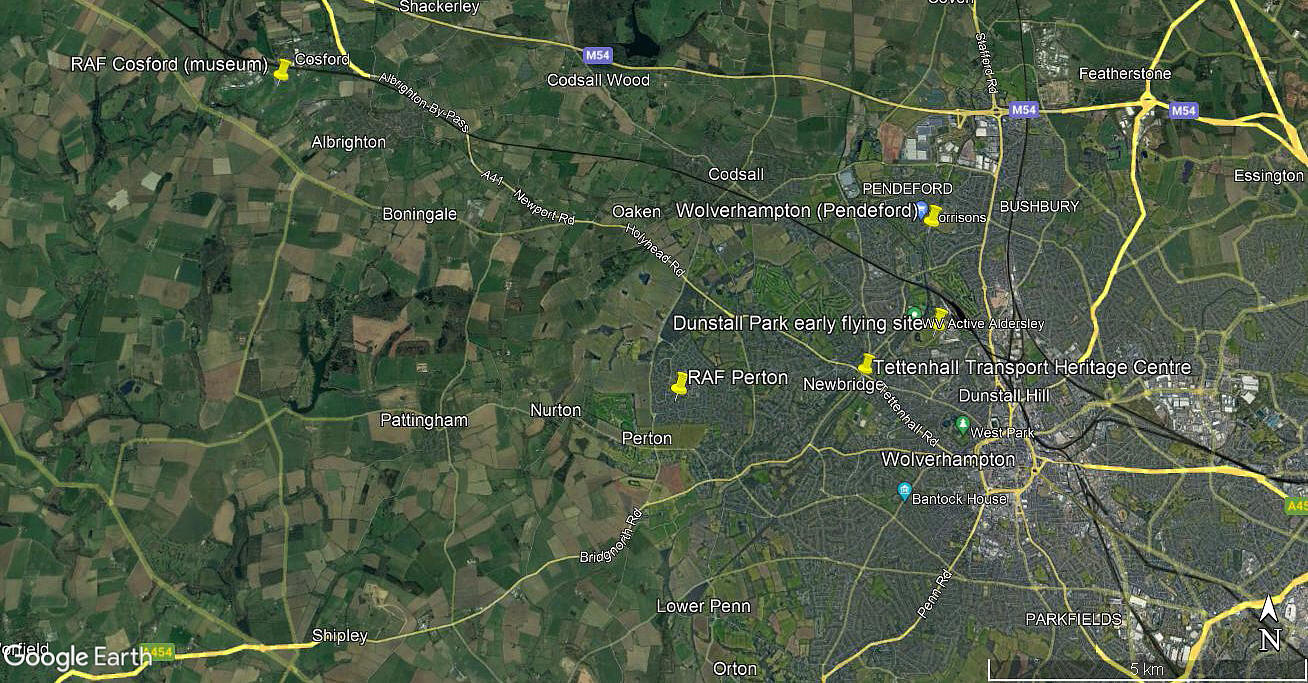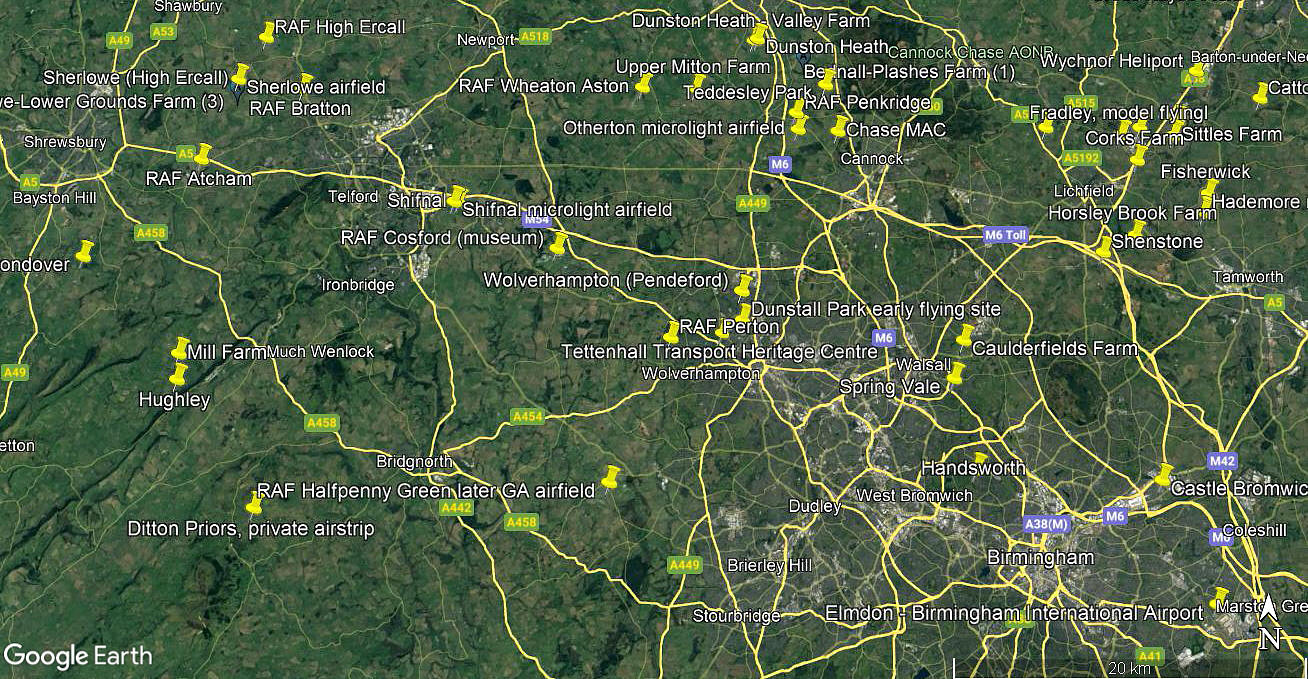Perton
PERTON: Military Landing Ground in WW1 later WW2 airfield
Note: The WW1 aerodrome was situated just to the SW of the WW2 airfield.
A MICHAEL T HOLDER GALLERY
Note: The first picture was kindly provided by Mike Holder. The other two pictures are from my Google Earth © derived database.
Military users: WW1: RFC/RAF
38 [Home Defence] Sqdn (Royal Aircraft Factory B.E.2c and later F.E.2b types)
Note: Was 38 Squadron the only user of this airfield?
WW2: RAF Flying Training Command 21 Group (Satellite Airfield)
No.5 (P) AFU [Advanced Flying Unit]
No.11 FTS (Flying Training School)
No.11 (P) AFU
No.21 (P) AFU (Airspeed Oxfords)
Location: SW of A41, W of Tettenhall, 3nm W of Wolverhampton
Period of operation: WW1: 1916 to 1918 WW2: 1941 to 1945
Site area: WW1: 50 acres
Runways: WW2: 04/22 1280x46 hard 16/34 1006x46 hard
10/28 1006x46 hard
NOTES: Used in WW1 by 38 Sqdn as both a Day and Night Landing Ground.
In 1916 38 Squadron was commanded by Capt. A T Harris. He went on to become Air Chief Marshall Arthur Harris, C-in-C of RAF Bomber Command during the crucial years when Bomber Command alone turned the tide, in prosecuting the war against the Nazi regime into Germany. The only arm of the British armed forces able to do this.
THE WW2 HISTORY
It appears that RAF PERTON was originally intended to be a fighter station, and earth-banked dispersals were provided. Quite what they were supposed to be defending isn't clear, as it was beyond the industrial sites in the West Midlands. The idea later being dropped. It seems that the Miles Magister N7626, was the first visitor, making a forced landing on the 11th November 1941, and suffering minor damage to its tailwheel due to rubble still on the runway.
In December 1941 the Parachute Training School at RINGWAY were looking for a more suitable site and looked into relocating here, but its proximity to a densely populated area ruled it out. Shame they clearly didn't have a map - if they had, this would have been obvious. The main reason, it seems, why 11 SFTS, based at SHAWBURY took an interest in using PERTON as a RLG, (Relief Landing Ground) was due to it having hard runways. A backlog of pilots forming due to the grass runways at SHAWBURY often being unservicable in the winter months. It appears that fourteen Airspeed Oxfords flew in during January 1942 and stayed here until March.
It seems that this detached Flight returned in August 1942, becoming a self-contained facility with accommodation for instructors, pupils and ground crew. All aircraft servicing, apart from major overhauls, being carried out here in a single fourteen-bay T.2 hangar. As listed above, other units such as 21 (P) AFU were using this site, becoming a detachment from 11 (P) AFU at WHEATON ASTON.
CIVILIAN USERS
It appears that Helliwells of Walsall and also Boulton-Paul used this airfield for air testing purposes.
We'd love to hear from you, so please scroll down to leave a comment!
Leave a comment ...
Copyright (c) UK Airfield Guide















